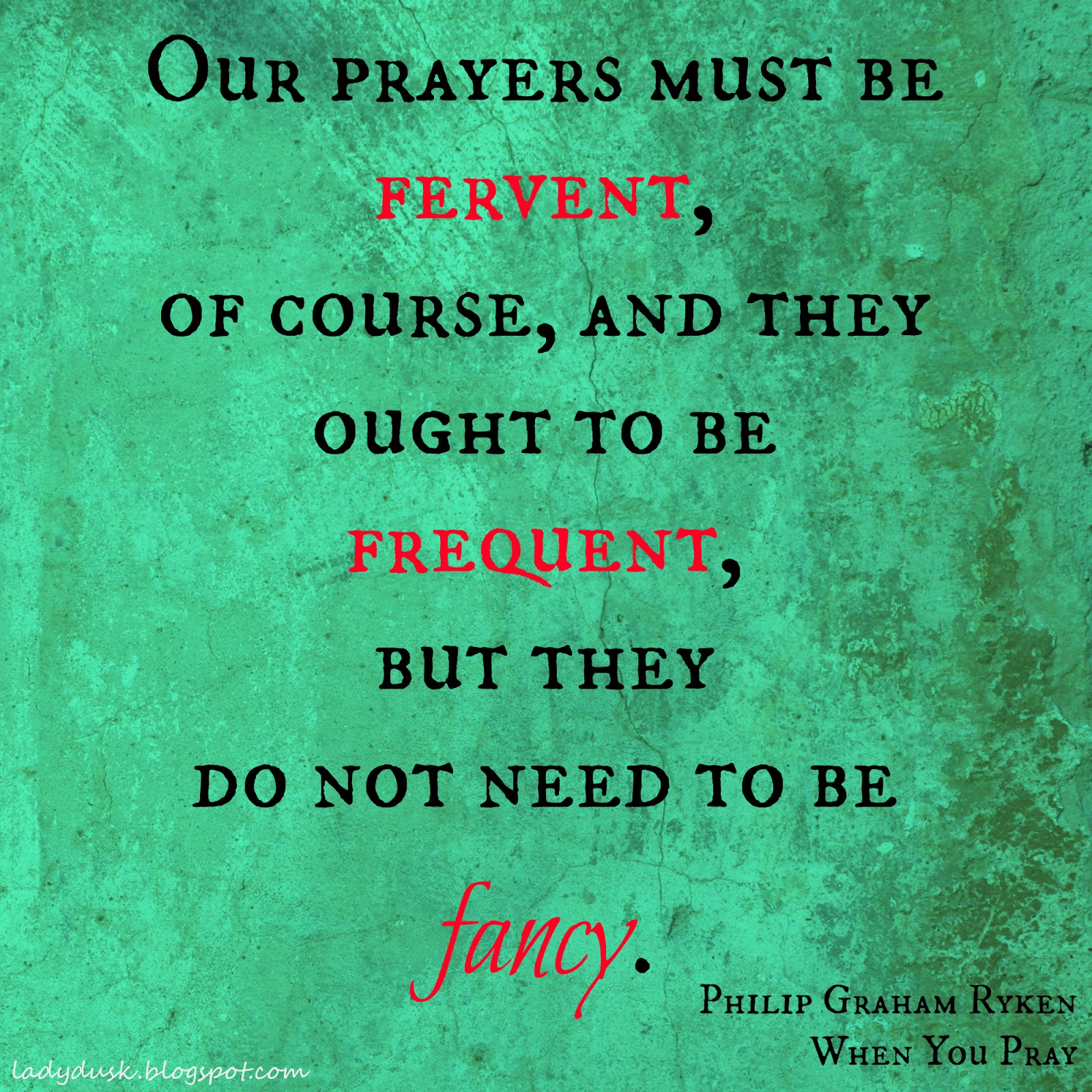Wednesdays with Words: Fervent, Frequent, not Fancy

Last summer, our associate pastor preached through praying the Lord’s Prayer (Here’s the first: Our Father Who is in Heaven).
It was revolutionary to my thinking.
And my praying.
Oh, my prayer life isn’t still what I’d like it to be (is anyone’s ever), but the ideas and actual praying is actually better. I decided that if I was to Attend! to God, I would actually have to pray better. That sent me looking for books on the subject, and since I had just heard that fantastic series on the Lord’s Prayer last summer, I thought I’d see about learning even more.
You might be shocked by how many books are available about praying the Lord’s Prayer. Or maybe you wouldn’t. I was. I decided to try Philip Graham Ryken’s When You Pray.
I’m in Chapter 3, and so far finding it excellent. His discussion of adoption and what that means for our relationship with our Father has been kicking around in my head leading to reflection and repentance.
Toward the end of Chapter 2, on page 31, Ryken encourages the believer:
If you find that your prayer life is weak, is it possible that you are trying to make things too complicated? Our prayers must be fervent, of course, and they ought to be frequent, but they do not need to be fancy.
God’s Fatherliness should encourage us to approach him with confidence and ardently. God is good and gives good gifts to his children. He instructs us to ask. Sometimes we must ask often.
But we can ask in our normal words. God doesn’t need language specifically for him. He doesn’t need us to pull out our $10 words.
He doesn’t even need alliteration. (But it is fun when we use it, right?)
When you pray, pray fervently. Continue to pray. Do not cease to pray. Pray often. Pray continually. Pray knowing that he hears you and has commanded you to ask of him.
But don’t worry about the fancy. Remember that the Spirit will intereced on our behalf when we don’t have the words, the Spirit will use groanings too deep for Words.

‘);

Yes, very similar to what I've been learning in A Praying Life, and very encouraging. I like the alliteration. 🙂
Yes! I enjoyed A Praying Life, too. I liked the pithy way he said this.
Great quote! I always love alliteration well-done. 🙂 That quote is very encouraging.
I love it, too. I was listening to something recently where they talked about Poetic language where alliteration was important in old English and the french brought in rhyme and now we have free verse. Oh! It was one of Pam's morning basket podcasts about poetry and it made me think about you because of alliteration. I thought the form and the meaning of this quote were both wonderful.